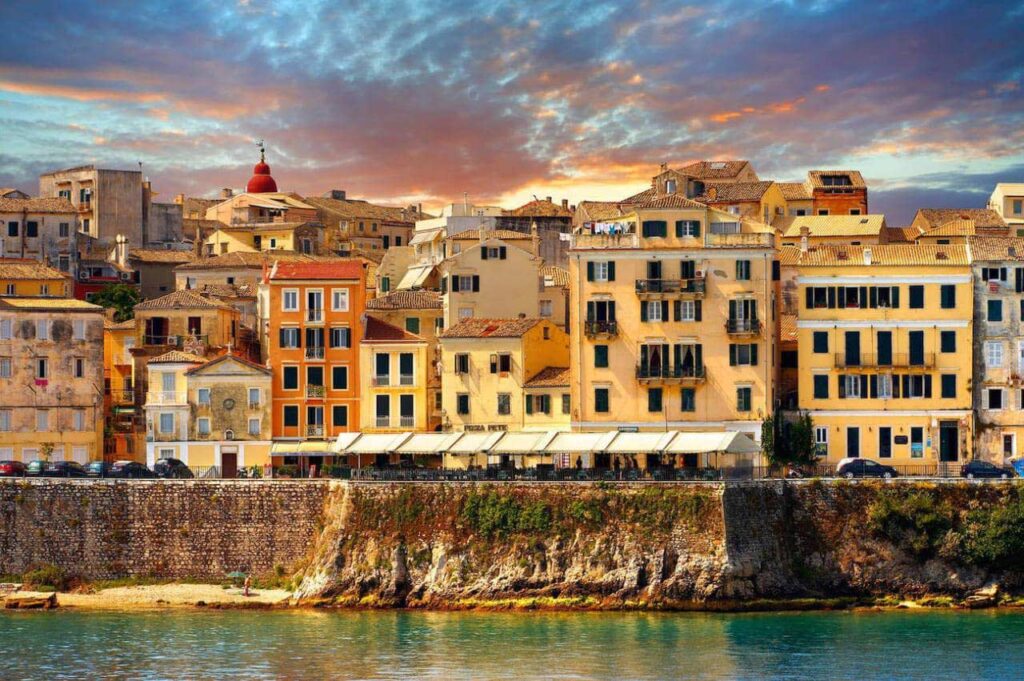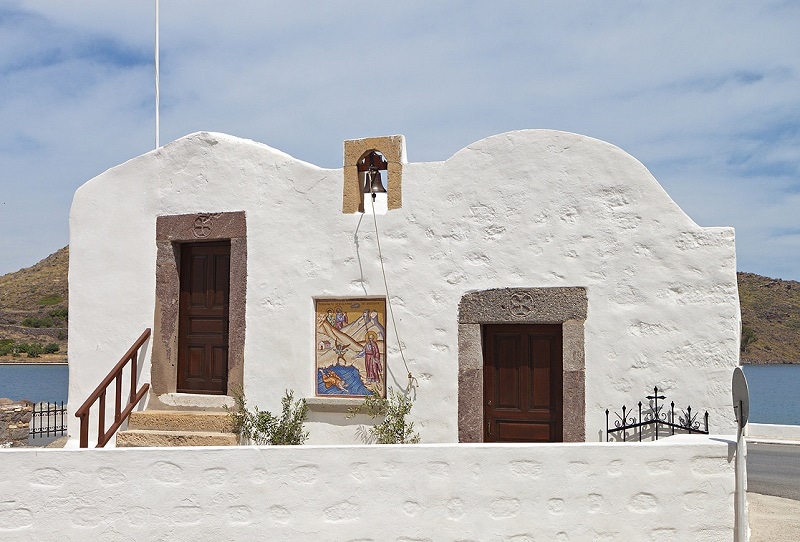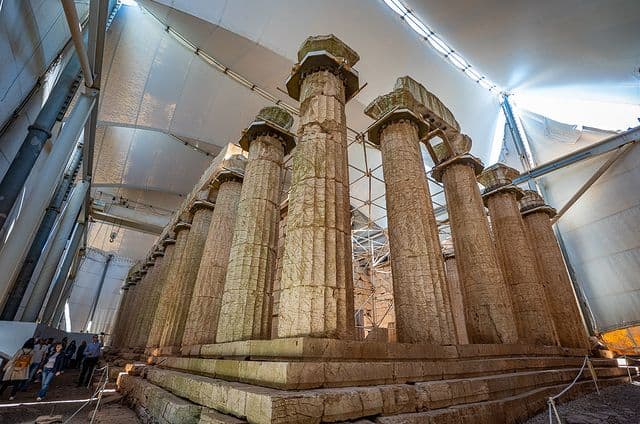Greece boasts a rich cultural heritage, with numerous archaeological sites, monuments, and historical places recognized on the UNESCO World Heritage list. Here's a detailed list of these sites in Greece and its islands, arranged chronologically by their date of registration:
- Temple of Apollo Epicurius at Bassae (1986): Situated in Bassae, Peloponnese, this temple is renowned for its magnificent beauty and unique architecture. Constructed between 450-400 BC, it stands as a testament to ancient Greek craftsmanship.
- Acropolis of Athens (1987): Dominating the Athenian skyline, the Acropolis is a symbol of classical civilization. It includes iconic structures like the Parthenon, Propylaea, Erechtheion, and Temple of Athena Nike.
- Archaeological Site of Delphi (1987): Located in central Greece, Delphi was revered as the most important oracle of ancient times. Pilgrims sought prophecy at the Temple of Apollo, making it a significant religious and political center.
- Sanctuary of Asklepius at Epidaurus (1988): Epidaurus, in the eastern Peloponnese, was a renowned healing center in antiquity. Patients sought cures through dreams induced by the god Asklepius, with the famous Ancient Theatre of Epidaurus nearby.
- Medieval City of Rhodes (1988): Constructed by the Knights of Saint John, the medieval city of Rhodes reflects a blend of Gothic and Ottoman architecture. Its well-preserved fortifications and landmarks are a testament to its rich history.
- Meteora (1988): Located in northwestern Greece, Meteora features monasteries perched atop towering rock formations. Built in the 13th century, these monasteries offer breathtaking views of the surrounding landscape.
- Mount Athos (1988): Known as the Holy Mountain, Mount Athos is an autonomous monastic state in northern Greece. Accessible only to men, it is home to numerous monasteries dating back to Byzantine times.
- Byzantine Monuments of Thessaloniki (1988): Thessaloniki's Byzantine heritage is evident in its churches and monuments, such as the Church of Saint Demetrius and the Rotunda of Saint George. These structures reflect the city's significance in Byzantine history.
- Archaeological Site of Olympia (1989): The birthplace of the ancient Olympic Games, Olympia features temples dedicated to Zeus and Hera, as well as the ancient stadium. Excavations continue to uncover its rich history.
- Archaeological Site of Mystras (1989): Mystras, a fortified town in the Peloponnese, was a Byzantine stronghold. Its churches and palaces display exquisite Byzantine architecture and frescoes.
- Delos (1990): According to Greek mythology, Delos is the birthplace of Apollo. This uninhabited island was once a thriving religious and political center, with well-preserved ruins and artifacts.
- Monasteries of Daphni, Osios Loukas, and Nea Moni (1990): These Byzantine monasteries, located in different regions of Greece, feature impressive architecture and mosaic decorations, showcasing Byzantine artistry.
- Pythagorion and Heraion of Samos (1992): Pythagorion, a port village, and the nearby Heraion sanctuary are significant archaeological sites on the island of Samos. They reflect the island's importance in classical and Roman times.
- Archaeological Site of Aigai (modern Vergina) (1996): Aigai was the capital of ancient Macedon and is renowned for the discovery of royal tombs, including that of Philip II, father of Alexander the Great. The site's museum displays remarkable artifacts.
- Monastery of Saint John and Cave of Apocalypse in Patmos (1999): Patmos is associated with Saint John the Theologian, who is said to have written the Book of Revelation in a cave on the island. The monastery and cave are important pilgrimage sites.
- Archaeological Sites of Mycenae and Tiryns (1999): Mycenae and Tiryns are ancient citadels associated with Greek mythology and the Mycenaean civilization. Their impressive architecture and tombs offer insights into ancient Greek culture.
- Old Town of Corfu (2007): The Old Town of Corfu, influenced by Venetian and British rule, features well-preserved fortifications, mansions, and public buildings. Its distinctive architecture and historic landmarks make it a UNESCO World Heritage site.




